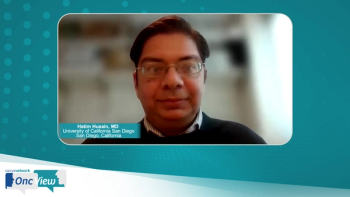
Historical Treatment Approach for EGFR Exon 20 Insertions in NSCLC
Zofia Piotrowska, MD, reviews historical treatment approaches for patients with NSCLC and EGFR exon 20 insertions.
Episodes in this series

Mathew Fowler: Let’s start to look at those treatment options. Historically, what has the treatment approach been like for patients with EGFR exon 20 insertions?
Zofia Piotrowska, MD: We’ve known for a long time that the commonly used first- and second-generation EGFR inhibitors—erlotinib, gefitinib, and afatinib—were ineffective therapies for these patients. The jury is still out on third-generation EGFR inhibitors, like osimertinib, but the data that we have so far certainly seem to show that these drugs are not as effective as they are for exon 19 deletions and L858R point mutations. For a long time, exon 20 insertion mutation-positive lung cancers were treated with standard chemotherapy, and that still remains a very good option for these patients. We think about first-line therapy with carboplatin-pemetrexed chemotherapy for these patients. There’s debate in the field about whether they should be treated with chemotherapy-immunotherapy combinations or whether immunotherapy may be less beneficial for patients with EGFR exon 20 than for other types of EGFR mutations. The jury is out on the role of immunotherapy, but chemotherapy certainly remains an important treatment option, which it has been historically for these patients.
Transcript edited for clarity.
Newsletter
Stay up to date on recent advances in the multidisciplinary approach to cancer.





































